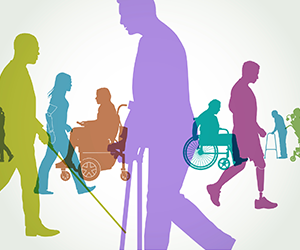Your primary source for courses and training from Colorado's Behavioral Health Administration. Select a course below to enroll and get started.
Popular Courses

Identity, Trauma, and Resilience: Mental Health in 2SLGBTQIA+ Communities
View Details

Supporting Relationships and Sexual Health in People with Intellectual & Developmental Disabilities
This course aims to equip participants with the knowledge and tools to provide relationship and sexual health support to individuals with Intellectual and Developmental Disabilities (IDD). By the end of the course, participants will be able to identify challenges faced by people with IDD in developing relationships and managing sexual health. They will learn to integrate support strategies addressing development, intimacy, consent, and safe internet practices.
Additionally, participants will identify relevant resources for assisting individuals with IDD and will develop a treatment considerations plan for educating them about engaging in healthy relationships and safe sexual activities.
View Details

Telebehavioral Health for Rural Populations
View Details

Understanding 2SLGBTQIA+ Identities
View Details

Disability Cultural Competency in Health Care (DCCHC) | Full Enrollment
View Details

Navigating Gender Diversity in Mental Health
View Details

Veterans Experiencing Homelessness or Houselessness
View Details

Telebehavioral Health for Veterans and Military-connected People
View Details

Treating Substance Use Disorder in Incarcerated Individuals
People in jail or prison are over 10 times more likely to have a substance use disorder (SUD) than the general population.
As a behavioral health professional working with individuals who are incarcerated, your role in addressing this disparity is critical. This course provides an overview of how incarceration affects SUD treatment needs, examines both pharmacological and psychosocial treatment approaches, and underscores the importance of maintaining continuity of care across transitions.
Throughout the course, you will gain knowledge that will help you to provide more effective care and treatment for individuals with SUD in correctional settings, ultimately leading to better health outcomes during incarceration and after release.
View Details

